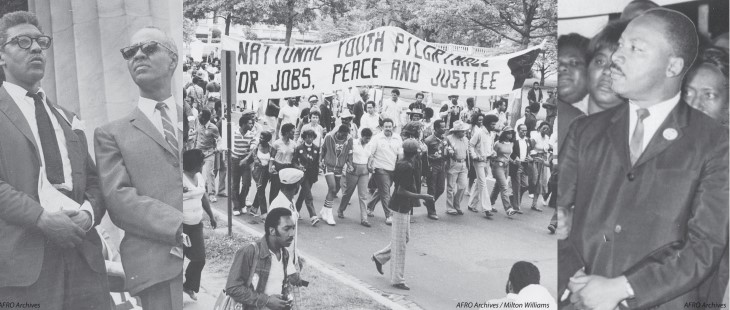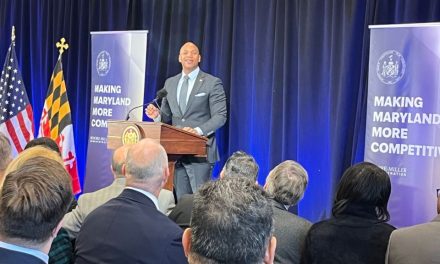
By DaQuan Lawrence,
AFRO International Writer,
DLawrence@afro.com
Six decades after the historic “March on Washington for Jobs and Freedom” (MOW) amassed 250,000 people at the Lincoln Memorial, demanding civil rights for African Americans and other disadvantaged citizens, a call to action has been issued again.
Protestors walked down Constitution and Independence Avenues in pursuit of civil rights on Aug. 28, 1963, and advocates are doing everything in their power to highlight the change yet to come. These days, members of the American public and international stakeholders alike argue that many social and economic conditions remain the same–or disadvantaged- for Black Americans.
Leaders of the international community recently spoke with the AFRO to reflect on the MOW’S global impact.
“The calls for justice by Dr. King and others remain relevant today,” Leon Christmas, a Nigerian-American, told the AFRO. “Black people are still struggling for our civil and human rights.”
Many people are aware of the national implications of the short-term and long-term impact of the 1963 March on Washington, however the international impact of the march was profound and is still being examined.
“The statements made 60 years ago still hold true as Black folk are fighting for justice against police brutality, the erasure of slavery and Jim Crow,” Nigerian international human rights activist Chinedu Nwokeafor told the AFRO.
In March 2021, human rights experts from 11 countries produced the Report of the International Commission of Inquiry on Systemic Racist Police Violence Against People of African Descent in the United States”, which found that the systematic killing and maiming of unarmed African Americans by U.S. law enforcement amount to crimes against humanity.
The human rights experts’ 188-page report recommended that the crimes should be investigated and prosecuted under international law. In Nov. 2021, the International Tribunal on Human Rights Abuses Against Black, Brown and Indigenous Peoples also found the U.S. guilty of crimes against humanity under international law.
This year, the anniversary march will highlight the ongoing struggle for freedom.

“The MOW isn’t just a day of remembrance, but also a movement and a perpetual push for Black people’s inalienable rights as human beings,” Nwokeafor said.
As the MOW’s final speaker, Martin Luther King Jr. delivered powerful remarks that were critical of imperialism, international racism and colonialism in all forms. King spoke in support of racial and economic justice, in what is now known as his “I Have A Dream” speech, a phrase absent from its initial draft.
Sixty years later, and newer generations are analyzing the speech with a different viewpoint.
“In contemporary society, it’s almost like Dr. King’s message has been watered down and weaponized against us because it’s often referenced but social and economic conditions remain similar. America would have to change the fabric of what ‘America’ is,” Christmas concluded.
The events during 1963 ultimately served as a catalyst to the passage of the Civil Rights Act of 1964 and the Voting Rights Act of 1965.
Robin Browne leads Ottawa’s 613-819 Black Hub in Canada, which advocates against systemic anti-Black racism in Canada. She believes that the MOW is an important example of “the power of the system to co-opt” both radical events, and how such events are remembered.
“In the two years before the March, Gloria Richardson and her daughter Donna led radical organizing against segregation in Cambridge, Md.,” Browne told The Afro.
Richardson was a witty, tough-minded radical social activist and a native of Baltimore, who led the Cambridge Nonviolent Action Committee (CNAC), a group that advocated for armed self-defense in Black communities.
Browne mentioned that people around the world have said the MOW was a way to ensure such radical tactics did not hit the streets of Washington as Richardson was invited to the March, but not allowed to speak.
“Dr. King is mostly remembered for his ‘I Have A Dream’ remarks – with little reference to the radical parts of his speech where he critiqued the U.S. government for not delivering on its promise to Black folks. We must study true history, not just the co-opted versions,” Browne said.

“One hundred years later [after the formal abolition of slavery] the Negro still is not free…the Negro is still languishing in the corners of American society and finds himself in exile in his own land…in a sense we’ve come to our nation’s capital to cash a check…,” King said during his timeless remarks at the MOW.
During his legendary remarks, King also acknowledged the invaluable contributions of Dr. WEB DuBois, who died in Ghana on the day of the March on Washington for Jobs and Freedom.
“We cannot talk of DuBois without recognizing that he was a radical all of his life. Some people would like to mute the fact that he was a genius who became a Communist in his later years,” King said, praising Dubois for his brilliance and the need for African Americans with radical, “comprehensive” views of U.S. domestic and international policies.
The MOW is known to have catapulted civil rights into the national conscience of America during the 1960s as African American’s advances for civil rights could no longer be viewed as merely a regional cause.
“Although the nature of the MOW has changed, it’s still clear that our freedom is still hanging in the balance,” Nwokeafor said regarding the March’s relevance in modern society.
According to CAIRN International, an online collection of francophone publications in social sciences and humanities, the March had an impact around the world. Mary L. Dudziak, notes in “The 1963 March on Washington: At Home and Abroad”, the activities in the U.S. inspired solidarity marches abroad in Africa and the Caribbean, as well as Europe and the Middle East.
During the 20th century, many members of the African diaspora migrated to Europe in pursuit of educational or occupational opportunities, especially African Americans seeking freedom from U.S. racism and Africans fleeing colonial tyranny.
Prolific writer, James Baldwin, who sought isolation in France in 1963 to complete a play, planned a “March on Washington” rally at the Paris nightclub, The Living Room. Approximately one hundred people attended the assembly after Baldwin placed an advertisement in the international edition of the Herald Tribune, calling a meeting about civil rights in the U.S.
In the Netherlands, the Action Committee for Solidarity with the March on Washington organized a demonstration in the U.S. Consulate in Amsterdam that included between 1,200 to 1,400 people.
In Germany, the American actor Al Hoosman led a march of 40 to 50 people to the U.S. Consulate in Munich, while in Norway, one hundred people marched through rain to petition the U.S. Embassy in Oslo in support of President Kennedy’s proposed civil rights bill.

Charlie W. Mills, mayor of In Kingston, Jamaica, led the city in a demonstration of approximately 2500 people. A solidarity and sympathy march also occurred in Tel Aviv, Israel.
In Africa, protesters held a small demonstration at the U.S. Embassy in Ghana, while students demonstrated at the U.S. Legation in Burundi.
“Dr. King’s call for equality and freedom at the MOW has become one of the most iconic speeches in U.S. history. Unfortunately, as Dr. King mentioned, years later Black Americans remain in exile in ‘their own’ land,” Ali Mahommed, an activist based in Tshwane, South Africa, told the AFRO.
Veteran civil rights activist and founder of the Negro American Labor Council, A. Philip Randolph, who served as vice president of the American Federation of Labor-Congress of International Organization (AFL-CIO), initially proposed the March on Washington in 1962, and served as a key organizer with mastermind, social activist Bayard Rustin.
Rustin and Randolph had laid the roots for the March in the 1960s almost two decades earlier between 1941-47 during the March on Washington Movement, which was established to pressure the U.S. government to provide equitable and fair working opportunities for African Americans and to desegregate the armed forces.
Despite policy changes that have been enacted in the U.S. throughout the last 59 years, African Americans and other disadvantaged groups continue to experience the effects of institutional and overt racism, as the civil rights struggle has become a fight for human rights.
The post Ready to march again: Sixty years later 2023 March on Washington to focus on jobs and freedom appeared first on AFRO American Newspapers .











